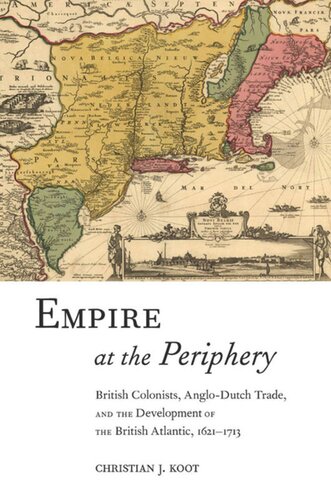

Most ebook files are in PDF format, so you can easily read them using various software such as Foxit Reader or directly on the Google Chrome browser.
Some ebook files are released by publishers in other formats such as .awz, .mobi, .epub, .fb2, etc. You may need to install specific software to read these formats on mobile/PC, such as Calibre.
Please read the tutorial at this link: https://ebookbell.com/faq
We offer FREE conversion to the popular formats you request; however, this may take some time. Therefore, right after payment, please email us, and we will try to provide the service as quickly as possible.
For some exceptional file formats or broken links (if any), please refrain from opening any disputes. Instead, email us first, and we will try to assist within a maximum of 6 hours.
EbookBell Team

0.0
0 reviewsThroughout history the British Atlantic has often been depicted as a series of well-ordered colonial ports that functioned as nodes of Atlantic shipping, where orderliness reflected the effectiveness of the regulatory apparatus constructed to contain Atlantic commerce. Colonial ports were governable places where British vessels, and only British vessels, were to deliver English goods in exchange for colonial produce. Yet behind these sanitized depictions lay another story, one about the porousness of commercial regulation, the informality and persistent illegality of exchanges in the British Empire, and the endurance of a culture of cross-national cooperation in the Atlantic that had been forged in the first decades of European settlement and still resonated a century later.
In Empire at the Periphery, Christian J. Koot examines the networks that connected British settlers in New York and the Caribbean and Dutch traders in the Netherlands and in the Dutch colonies in North America and the Caribbean, demonstrating that these interimperial relationships formed a core part of commercial activity in the early Atlantic World, operating alongside British trade. Koot provides unique consideration of how local circumstances shaped imperial development, reminding us that empires consisted not only of elites dictating imperial growth from world capitals, but also of ordinary settlers in far-flung colonial outposts, who often had more in common with—and a greater reliance on—people from foreign empires who shared their experiences of living at the edge of a fragile, transitional world.
Part of the series Early American Places